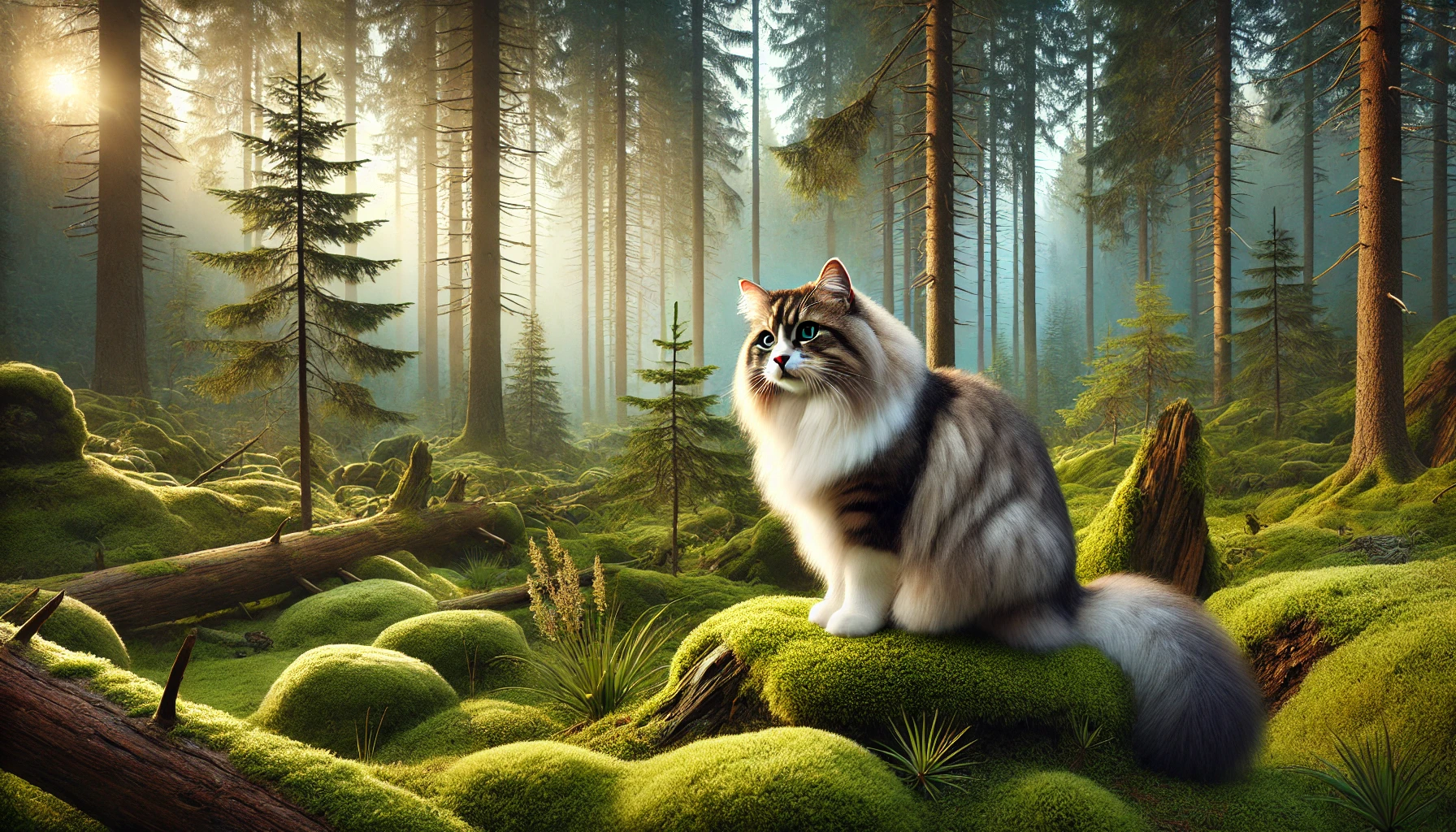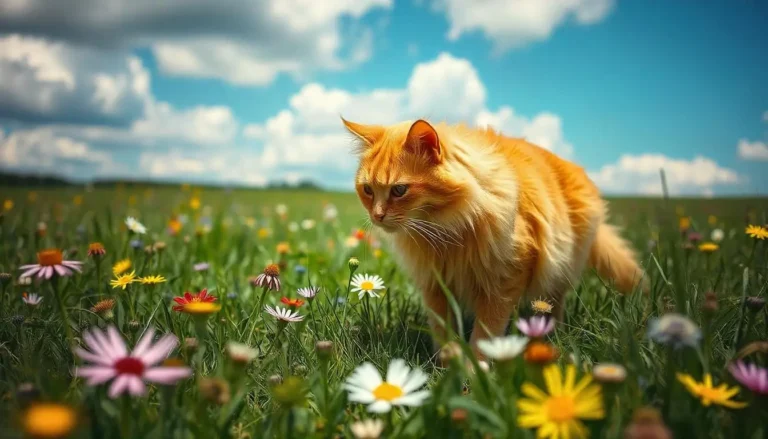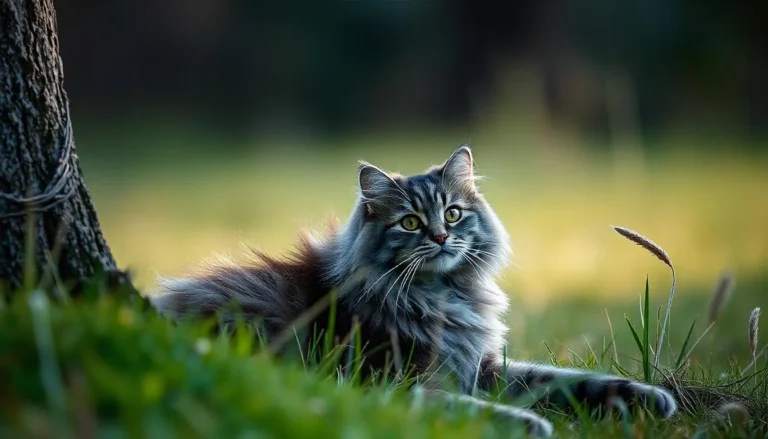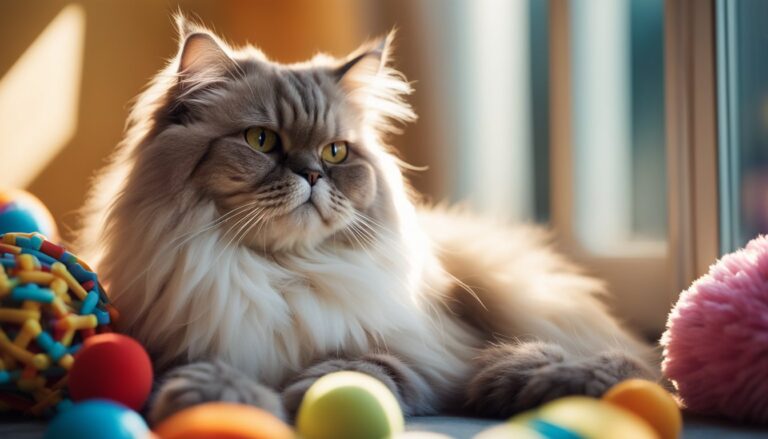Siberian Cat: Characteristics, Care and History
The Siberian cat is a friendly, loyal, and ancient breed that originated in the dense forests of Russia. It is known for its tall stature, thick triple-layered coat, and charming personality. This cat is very affectionate and loves to cuddle. This is why it is an excellent choice as a pet for a single person or a family. They are just as loyal as dogs and surprisingly, they are less allergenic for many allergy sufferers.
Characteristics of Siberian Cats:
Here are the best characteristics of the Siberian cats:
Body Size:
Siberian cats are a large and strong breed known for their thick fur and friendly nature. They are normally between 10 and 20 pounds and about 20 to 25 inches tall.
Body Shape:
Siberian cats have strong, muscular and slightly rectangular body shape. They also got large breast and sturdy legs which help them in harsh weather.
Grooming:
Siberian cats have lots of fur. Having lots of fur means a vast amount of hair. Be ready to find a lot of hair while taking a Siberian cat home. You have to groom their hair depending on their fur type. It is okay if they are silky, but if they are rough, you have to groom and comb them properly. Grooming may cause discomfort, but try these tricks discussed below:
- Infrequent Brushing
- Infrequent Bath
- Trimming
- Cleaning of Ear
Eyes:
Siberian cats have large,slightly oval-shaped eyes in various colors.Their bright eyes make them attractive and lovely.
Smart and Athletic:
Siberian cats are intelligent and can quickly learn tricks or solve puzzles. They are also athletic and love to climb, jump and explore high places.
Friendly:
They love the company of people and other pets and they are often the centre of attention during functions and family gatherings.
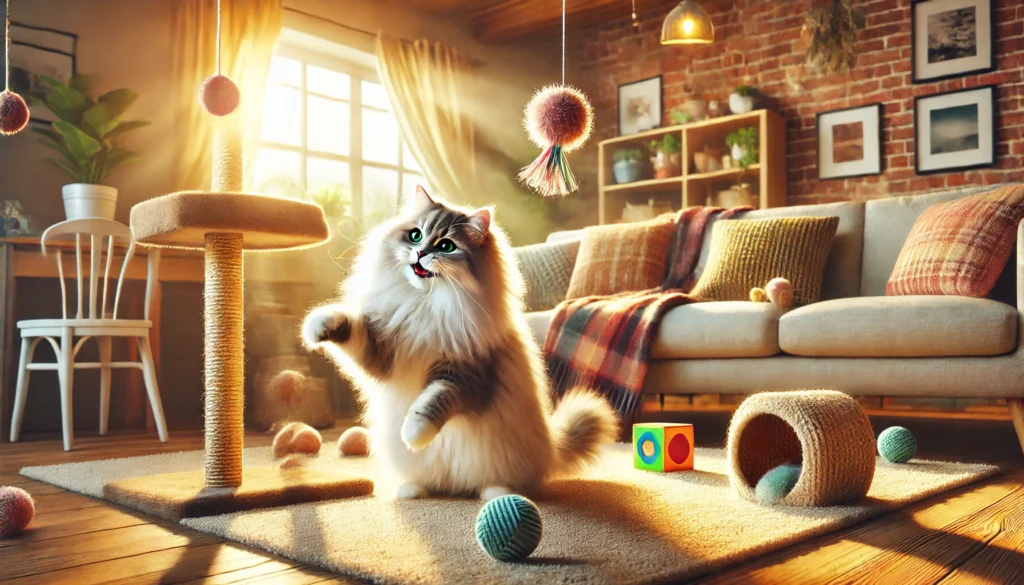
Coats:
Siberian cats have thick and triple-layered coats. These coats are water-resistant and best for cold and harsh weather. This splendid thick coat comes in a wide range of colours and patterns.
History of Siberian Cat:

The timeline presents the history of the Siberian cat. Here’s the breakdown of each point:
11th Century: Origin in Siberia
- Siberian cats originated in the forests of Siberia, evolving their thick coats and hardy nature to survive the harsh climate. Represented by a forest icon.
16th Century: Russian Folklore
- The breed gained cultural significance, appearing in Russian Folklore and stories as symbols of resilience and loyalty. Depicted by a simple house or village icon.
19th Century: Recognized as a Breed
- Siberians were officially documented as a distinct breed in the 19th century. Illustrated with a book or scroll icon.
1990s: Global Recognition
- The Siberian cat was introduced to Europe and North America, becoming popular worldwide in the 1990s and marked by a globe icon.
Personality and Behavior:
Siberian cats are known for their striking appearance and engaging personalities. As a breed, they often exhibit playful and affectionate behaviour, making them excellent companions.
Siberian Personality and Behavior:
Siberian cats are renowned for their friendly, affectionate, and pleasant nature. These cats are known for their loyalty and often form strong bonds with their families. Intelligent and curious, Siberians enjoy exploring their surroundings and solving puzzles. They are also adaptable, thriving in various living situations, from apartments to larger homes. Their gentle disposition makes them suitable for families and individuals alike.
What is the experience of owning a Siberian cat like?
Due to their friendly and social nature, owning a Siberian cat can be a rewarding experience. These cats typically thrive in a family environment where they can interact and bond with their owners. They are intelligent and curious, often enjoying games that stimulate their minds. Siberians are also known for their loyalty, frequently forming strong attachments to their human counterparts.
Caring for a Siberian Cat:
Caring for a Siberian cat involves attention to their diet, exercise, and mental stimulation needs. These aspects are crucial to maintaining their health and well-being.
Diet and Nutrition:
Siberian cats require a balanced, protein-rich diet to support their energy levels and overall health. High-quality cat food should contain real meat as the first ingredient. Suitable protein sources include chicken, turkey and fish. It’s important to avoid artificial fillers and preservatives. Including wet food in their diet can help with hydration, as Siberians may not drink as much water as needed. Additionally, a regular feeding schedule promotes routine and helps prevent obesity. Monitoring their weight regularly ensures they remain fit and healthy, as Siberians are prone to gaining weight.
Exercise and Mental Stimulation:
Siberian cats are active and playful, and they need daily exercise to stay healthy. Interactive toys, feather wands and laser pointers can stimulate their hunting instincts. Cats enjoy climbing, so providing them with trees or shelves helps satisfy their need to explore vertical spaces. Incorporating puzzle feeders can also enhance mental stimulation, requiring the cat to solve challenges for treats. Regular interactive playtime strengthens the bond between the owner and the cat while keeping them physically fit. Offering a variety of stimuli keeps them entertained and prevents boredom-related behaviours.
Seasonal Considerations for Siberians:
Winter requires extra attention for Siberians. Their thick fur provides insulation, but indoor heating can dry their skin. Regular grooming helps remove excess fur and maintain skin health. It’s essential to ensure they have a cozy, warm space to rest.
Summer means increased hydration needs. Keep fresh water available, and offer shade to avoid overheating. Grooming is essential to prevent matting, as they may shed more during warmer months.
Spring and Fall bring transitions that require gradual adaptation. Monitoring their comfort levels as temperatures change ensures they adapt well. Adjusting the indoor environment with fans or heaters can help maintain a stable climate for these cats.

Health and Well-being:
Health and well-being are vital components of a fulfilling life, impacting physical and mental states. Many individuals may be unaware of common health problems that can arise, often neglecting signs that point to underlying issues. Recognizing these problems early through regular veterinary visits and appropriate medications can significantly enhance quality of life. Keeping pets up-to-date on vaccinations and medications will protect them from severe diseases and support their overall well-being.
Common Health Problems to Watch For:
Some prevalent health problems vary by species but often include obesity, dental disease and skin issues. Regular dental checks can prevent serious complications, while obesity usually results from poor diet and lack of exercise.
Other issues to monitor include:
Ear Infections: Often seen in breeds with floppy ears.
Parasites: Fleas, ticks and intestinal worms can lead to severe health problems.
Arthritis: Particularly common in older animals, impacting mobility and quality of life.
Awareness and early detection can lead to more effective treatment and improved outcomes.
Chronic vs Acute Conditions:
Chronic conditions develop slowly and last for a long time, often requiring ongoing management. Examples include diabetes, arthritis and heart disease. These conditions may necessitate lifestyle adjustments and regular veterinary visits for monitoring and medication.
Acute conditions, on the other hand, arise suddenly and may be life-threatening. Issues like infections, injuries or sudden-onset diseases require timely intervention.
Recognizing the difference between these types of health issues is crucial. It enables owners to respond appropriately, ensuring timely veterinary care when needed.
RELATED: Travelling With Pets in Japan a Complete Guide
Preventive Health Strategies:
Preventive health strategies are vital for promoting long-term health. Regular vet check-ups are essential for prevention, helping to detect potential issues early on.
Owners should also focus on:
Vaccinations: Protect against common diseases.
Nutrition: High-quality diets tailored to breed and age can prevent obesity and related health risks.
Exercise: Regular activity is necessary for maintaining a healthy weight and overall fitness.
Implementing these strategies creates a proactive approach to health, significantly reducing the risk of severe health problems later on.
Healthcare Essentials:
Regular healthcare practices ensure animals receive the necessary attention to maintain their health. Key areas include veterinary visits, medications, and immunizations, essential for preventing diseases and addressing health concerns.
Veterinary Visits:
Regular veterinary visits are crucial for assessing an animal’s health. They should occur at least once a year, but more frequent visits may be needed based on age or health status. During these check-ups, veterinarians conduct physical examinations, check vital signs, and recommend tests such as blood work or urinalysis.
Pet owners should prepare a list of any behavioural changes or symptoms observed. Meaningful discussions can include nutrition, exercise, and dental care.
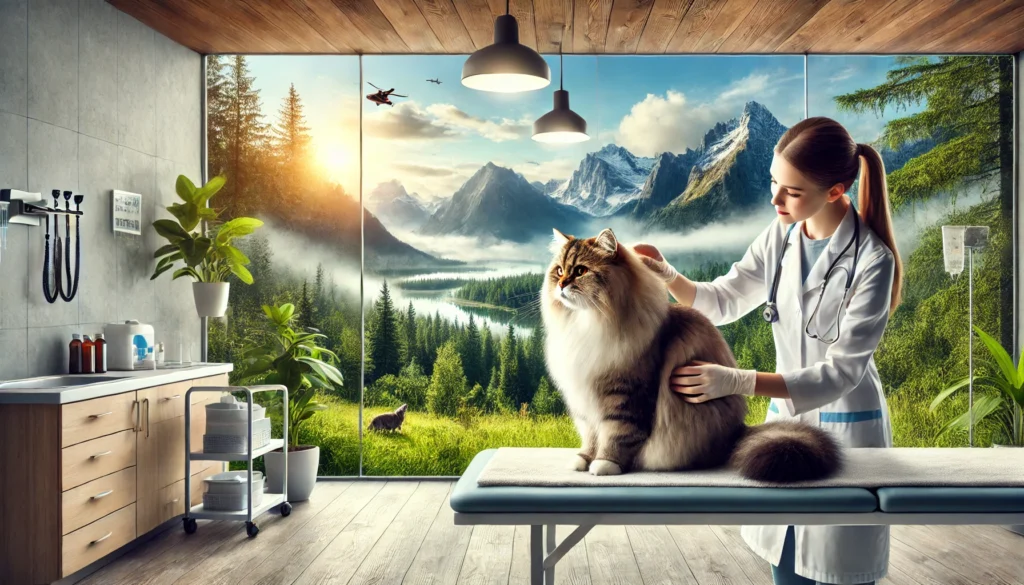
Medications:
Medications play a significant role in managing health conditions and preventing illness. Common medications include flea and tick preventatives, heartworm preventatives, and anti-inflammatory drugs. Following the veterinarian’s dosing instructions is crucial.
Prescription medications must be administered as directed. Owners should educate themselves about possible side effects and interactions with other medicines. It is also essential to maintain a medication schedule for chronic conditions.
Immunizations:
Immunizations protect against various infectious diseases. Vaccination schedules typically begin in early life and require boosters throughout the pet’s life.
Pet owners should keep thorough vaccine records and discuss any updates or changes with their veterinarian. Awareness of local disease outbreaks can help in deciding on additional vaccines as needed.
RELATED: Travelling With Your Cat a Comprehensive Guide
Getting a Siberian Cat:
Siberian cats are known for their alluring looks and friendly personalities, making them a popular choice for pet owners. When considering adding a Siberian cat to the home, it’s essential to explore both adoption and purchase options, along with specific care needs—understanding where to find these cats, whether through breeders or rescue organizations, is the first step in bringing one into a household.
Where to Adopt or Buy:
One efficient way to find a Siberian cat is by researching local breeders or shelters specialising in this breed. Start by looking for breeders from recognized organizations like the Cat Fanciers’ Association (CFA) or The International Cat Association (TICA). These affiliations often indicate adherence to ethical breeding practices. Using online resources, including websites and social media, can help identify reputable shelters or rescue groups. Always check for reviews and testimonials from previous clients. This feedback provides insights into the experiences of others with the breeder or shelter, helping to ensure a trustworthy source.
Special Considerations for a Siberian Cat:
Special considerations for a Siberian cat are given below:
Environment
Climate
Socialization
Pros and Cons:
Pros:
Affectionate: Siberians tend to be loving and loyal companions.
Intelligent: They are highly trainable, making them suitable for various activities and tricks.
Good with Children and Pets: Their friendly disposition makes them adaptable in multi-pet households.
Cons:
Grooming Needs: Their long fur needs regular grooming to avoid tangling and matting.
Active: While playful, their high energy levels necessitate daily playtime and stimulation.
Potential for Allergies: Some individuals may be allergic to cats, including Siberians.
FAQS:
1. What are Siberian cats known for?
Siberian cats are known for their striking appearance, thick triple-layered coats, and friendly, playful personalities. They are also admired for their intelligence, loyalty, and athleticism.
2. Are Siberian cats hypoallergenic?
While not completely hypoallergenic, Siberian cats are often considered a better option for people with allergies due to the lower levels of allergens in their fur and saliva.
3. How much exercise do Siberian cats need?
Siberian cats are active and love playing, climbing, and exploring. They require daily exercise and mental stimulation to stay healthy and happy.
4. Do Siberian cats get along with other pets?
Yes, Siberian cats are generally friendly and social. They get along well with other pets, including dogs, and enjoy being part of the family.
5. What is the temperament of a Siberian cat?
Siberian cats are affectionate, gentle, and playful. They have a dog-like loyalty, enjoy companionship, and can be very vocal when they want attention.
6. How should I groom my Siberian cat?
Siberian cats have thick coats that require regular grooming, especially during shedding seasons. Brushing a few times a week helps prevent mats and tangles.
7. Are Siberian cats healthy?
Siberian cats are generally healthy but can be prone to certain genetic conditions such as hypertrophic cardiomyopathy (HCM). Regular vet check-ups and a healthy diet are essential for their well-being.
8. How long do Siberian cats live?
On average, Siberian cats live between 12 to 15 years, though some can live even longer with proper care.
9. Do Siberian cats need a lot of attention?
Siberian cats are social and affectionate, so they thrive on interaction with their family. They can become lonely if left alone for long periods, so it’s important to give them plenty of attention and stimulation.
10. Are Siberian cats good with children?
Yes, Siberian cats are generally excellent with children. Their playful and tolerant nature makes them ideal for families with young children.
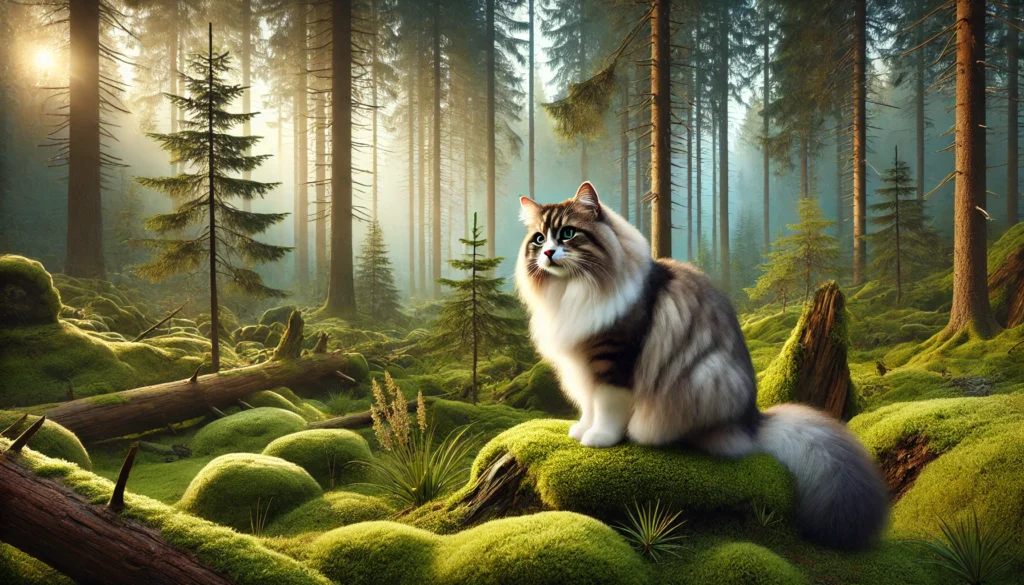
Final Verdict:
Siberian cats bring beauty, charm and a lively spirit to any home. Their affectionate nature, playful energy and loyalty make them wonderful companions, especially for families seeking an active and loving pet. By learning about their history and other details, you’ll be well-equipped to embrace the joy of having a Siberian cat in your life. Hopefully, this guide has given you the confidence to decide if this captivating breed is the perfect match for you.

